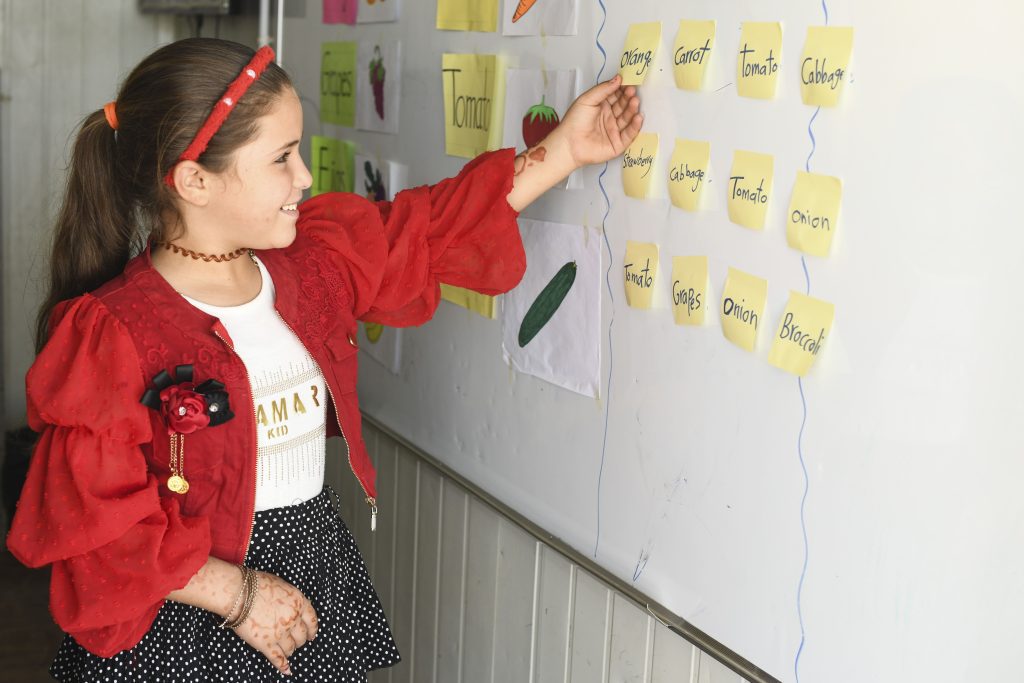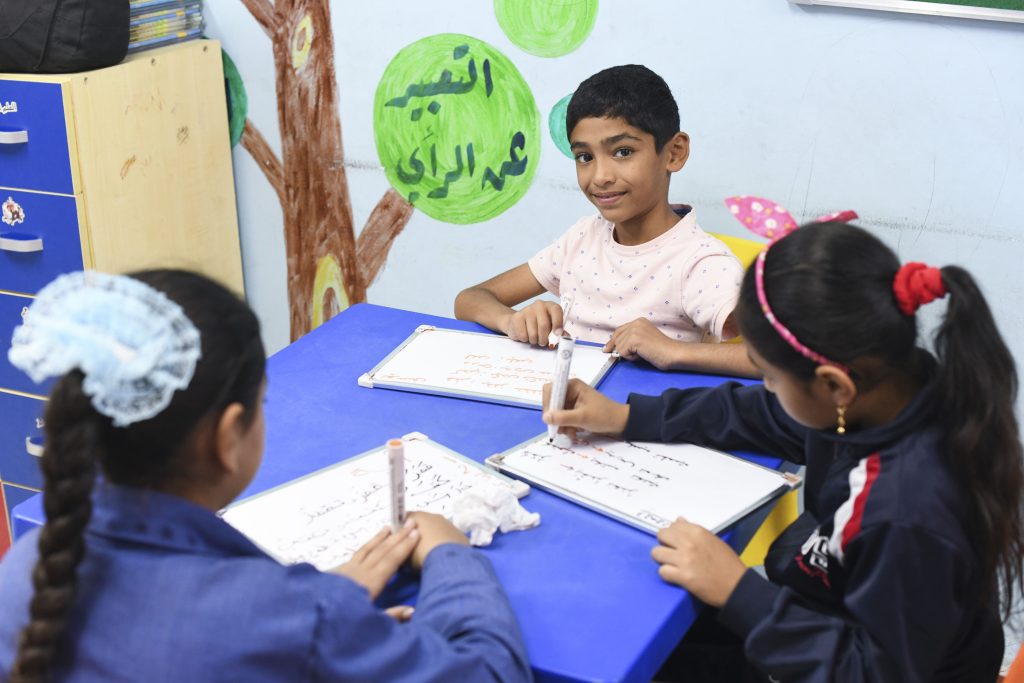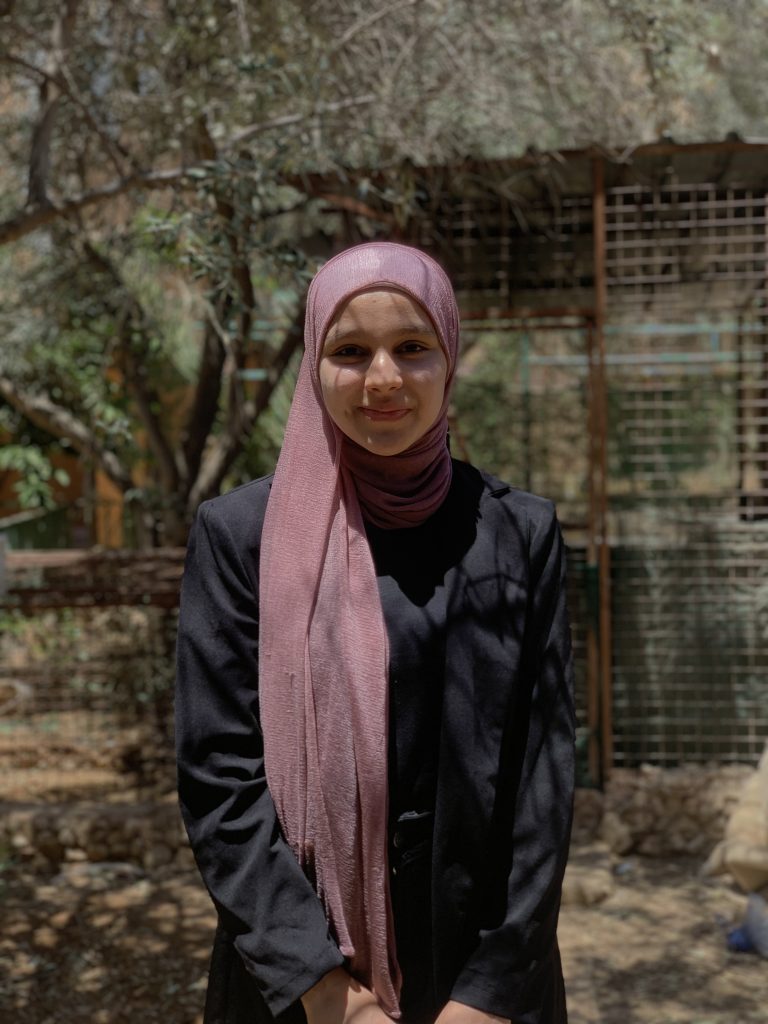Makani: Improving young people’s skills for a positive transition to adulthood
In response to the crisis in Syria and in support of underprivileged groups in Jordan, the European Union has made €10 million available to UNICEF in early 2024 to support vulnerable children and youth in Jordan over the next two years through the “Education and Makani Programmes for Vulnerable Syrian Children and Children of Host Communities in Jordan”. This partnership will benefit over 36,000 children and youth in Syrian refugee camps by providing them with quality education. In addition, 9,000 vulnerable children and youth of different nationalities in Jordan will receive integrated learning, child protection and skills development in 114 Makani centres.

The original rationale for supporting the Makani Centres under the Madad Trust Fund was linked to the principle of “No Lost Generation” (London Conference 2016) and aimed to provide non-formal education for Syrian refugee children and other vulnerable groups, including non-Syrian refugee children, children with disabilities and other out-of-school children. In this context, “The EU, together with other donors, has continuously supported the Makani approach implemented by UNICEF,” explains Wieke Waterschoot, Programme Manager Education – Syria Response at the EU Delegation in Jordan.
Makani, which means ‘my space’ in Arabic, is a holistic programme targeting the most vulnerable children in Jordan. In its centres, Makani promotes the well-being of children, adolescents and young adults and supports them in reaching their full potential – physically, cognitively, socially and emotionally. Since its inception, the Makani programme has provided multi-sectoral services by linking interventions in the areas of learning support, child protection/psychosocial support, skill building programmes, early childhood development and parenting support. In addition, it tackles the high drop-out rates among vulnerable children, especially Syrian refugees. The programme also encourages community participation and volunteering, strengthens a sense of belonging and provides safe spaces for learning and leisure activities. The overall objective of this is to support children, teenagers and young adults in improving their learning and skills to make a positive transition into adulthood.

A Wide Open Window of Opportunities
Sadeen Hossam al-Asaad, a Syrian teenager who fled to Jordan, attended Makani sponsored classes 5 years ago. Today, at the age of 15, she talks about her experiences. Thanks to the programme, she was able to better understand maths, a subject she struggled with at school.
Even though she signed up for the programme long before COVID-19, it proved particularly useful during the pandemic, allowing her to follow classes from home as Makani had provided the children with computers and internet subscriptions. Sadeen had to share her laptop with her two brothers who were also taking part in Makani’s remedial classes, but that did not stop her from succeeding at school.
“Mrs Aya, my teacher at Makani, was very helpful and took the necessary time to explain all the things I didn’t understand,” says the teenager, who would like to learn languages. She is now taking English lessons at school but also learning Turkish, “because there are many words that are similar to those in Arabic,” she explains.
Over the past three years, Makani has reached around 137,700 programme participants funded by various donors.

Life-long and Life-changing Impact
“UNICEF is grateful for the continued support of the European Union to enable the most vulnerable children in Jordan to learn, be protected and develop their capacities,” says Philippe Duamelle, UNICEF Representative in Jordan. “Together, we will continue our efforts to ensure that every child has the opportunity to thrive and realise their full potential,” he adds.
Wieke Waterschoot points out that a recent Gender and Adolescence Global Evidence (GAUGE) study showed that children who attended Makani centres were 50% more likely to be enrolled in school and had better learning outcomes compared to similar groups who did not attend Makani. They also had better outcomes in terms of social bonding, self-confidence, awareness of violence and well-being. In addition, adolescents and young adults who were enrolled in Makani centres were 38% more likely to hold a leadership position in school, 41% more likely to have control over their own finances and twice as likely to participate in sports than those who were not enrolled in Makani centres.
Furthermore, 93.6% of children who participated in the Accelerated Learning Programme (ALP) positively improved their performance in Arabic and maths, according to the latest data from pre- and post-participation tests.



























 Syria
Syria 


